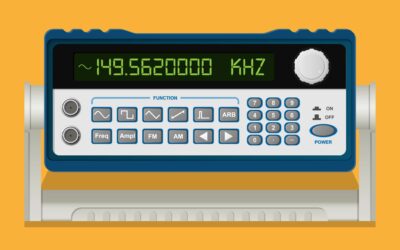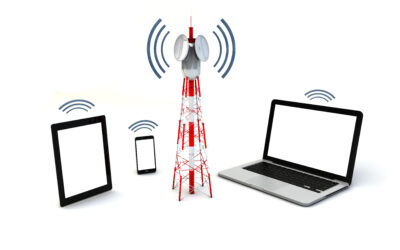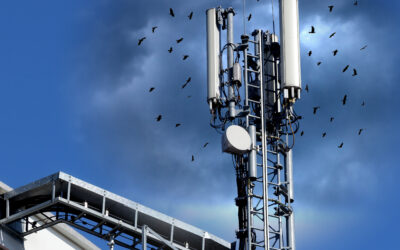Keeping Safe from RF Radiation: The Importance of Regular Testing

Radio-Frequency (RF) radiation is a form of non-ionizing radiation that comes from devices such as cellular and cordless phones, microwaves, Wi-Fi routers, baby monitors and other wireless transmitters. While RF radiation can be beneficial in some ways – it enables our mobile communications to work – there has been much debate over its potential dangers since studies have linked excessive exposure to an increased risk of cancer and other health problems. Read on to learn more about the risks associated with RF radiation and what measures you can take to stay safe.
RF radiation is categorized into two types: ionizing and non-ionizing. Ionizing radiation, which includes gamma rays, x-rays and other forms of high-energy radiation, has the capacity to cause damage on a cellular level by actually breaking apart molecules in our body. Non-ionizing radiation can’t break apart molecules, but it can still have negative impacts on our health if we are exposed to too much of it in too short a time period. The most common sources of RF radiation include cell phones, cordless phones, Wi-Fi routers, baby monitors and wireless audio/video systems.
It is important to regularly test for RF radiation in any environment where there may be potential exposure. Testing helps ensure that the levels of exposure are within acceptable limits and that any potential risks posed by RF radiation can be minimized. Regular testing also ensures that any changes in equipment, environmental conditions or other factors do not lead to excessive exposures and unnecessary health risks.
Measurements provide information about maximum peak exposures and average exposure levels over time. Testing should be conducted at various locations within the area being tested, to get an accurate picture of the potential RF radiation exposure.
To ensure accuracy and safety, it is important to use a qualified professional to conduct testing for RF radiation. It is also important that any equipment used for testing is approved by the relevant authorities and meets all necessary safety requirements.
Regularly testing for RF radiation can help you identify any areas where there may be excessive exposures or other potential risks due to RF radiation. This can then enable you to take action to reduce these risks and keep everyone in your environment safe from the health risks associated with excessive RF radiation exposure. By regularly testing for RF radiation, you can help ensure that your workplace, home or community remains safe from unnecessary health risks posed by this type of electromagnetic energy.
In conclusion, it’s important to understand the potential risks associated with exposure to RF radiation and take measures to reduce your risk of any negative health impacts. Regular testing for potential sources of RF radiation in your home or office environment can be a simple but effective way to stay safe. With these steps, you can enjoy the benefits of modern technology without worrying about putting yourself at risk.
In relation, Smith & Fisher is your trusted source for radio frequency radiation testing services. We use the most up-to-date software and measurement tools to help you stay safe from RF radiation. By taking advantage of our services, we can help you ensure that your business or residence meets all health and safety standards. Contact us today to learn more about how Smith & Fisher can help you keep safe from dangerous RF radiation.
Recent Posts
- RF Safety: The Silent Protector of Wireless Communication
- How RF Signal Generators Drive Effective Testing Practices
- How Radio Frequency (RF) Testing Enhances Connectivity and Reliability
- The Importance of RF Education in Today’s Tech Landscape
- What to Expect During a Radiofrequency Radiation Site Inspection?






